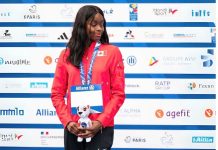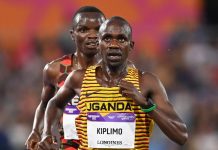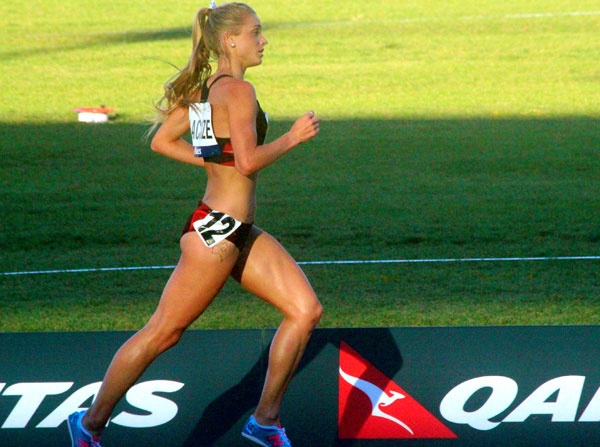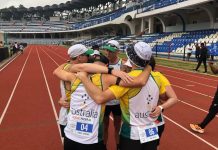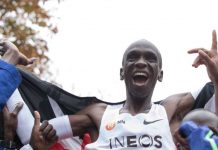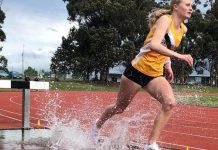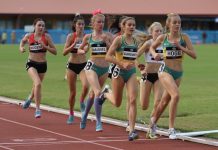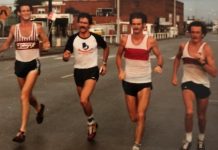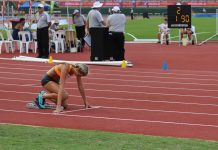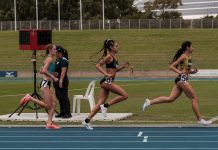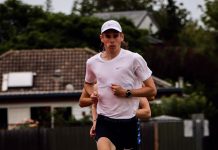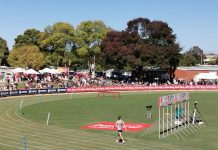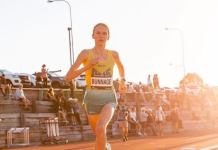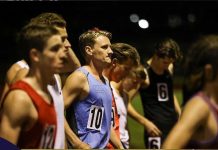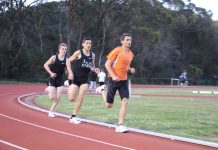David Culbert is known as being one of Australia’s most prominent track and field commentators. A retired long jumper with two Commonwealth silver medals to his name (1990 and 1994), and owner of media company Jump Media, we caught up with David to get his thoughts on everything from LaCaze and Hollingsworth to sports gambling….
RT: Much has been spoken about the Genevieve LaCaze issue and you have let your opinions be known. AA seem to have taken all the heat on the issue, what about the AOC?
DC: AA is not solely to blame. The AOC set the cut-off dates for nominations to be made, and AA had to work back from the 22 July date, but the way Eric and AA in general handled the issue once the AOC indicated that they wanted LaCaze to be selected was the problem. They came off second best that’s for sure.
In any case, the end result is good for the athletes, albeit they would have been a lot better off knowing the dates in mid-2011 than mid-2012.
RT: Eric Hollingsworth and his double standards in entering Sean Wroe to the 2011 World Championships team has again become a hot topic. Do you think Wroe did not deserve his spot and do you think this fiasco has affected Wroe in the long run?
DC: Well Sean was selected to run the relay, but he was entered to run the individual 400m as well. This was strange as he was yet to qualify and he was nominated by Eric ‘just in case’. Why didn’t he nominate Lachlan Renshaw ‘just in case’ for the 800m, or any other of the relay runners ‘just in case’? It’s just a plain conflict of interest. When he took the job as high performance manager Athletics Australia made it clear to him that he wasn’t to coach athletes as there is an obvious conflict of interest. But Eric didn’t really listen to AA’s wishes.
I think Sean has perhaps unfortunately paid the price. Whether or not he deserved a spot in the 4 by 400m team for London is debatable, I think he had very strong claims, so perhaps he has paid a price for his close ties.
The topic of who should be the high performance manager is a problematic one. Gary Bourne, Mitchell Watt’s coach, would make a terrific high performance manager, but where is he at most use? Coaching our best jumpers or as high performance manager? He cannot do both, just as Hollingsworth cannot do both.
RT: Thoughts on the games and the Aussie team?
DC: There is a lot to be excited about. Guessing the medal tally is a waste of time but there are numerous athletes who could do anything on the day. Obviously Sally Pearson and Mitchell Watt are our two stars of the moment with real chances of gold. Our walkers are always up there but the more mild conditions of London in comparison to Beijing, Delhi and Daegu will work against them and bring the Russians into the mix a bit more.
One athlete who I would love in the team that isn’t is Jana Pittman-Rawlinson. She is an ex-world champion in an event that has not improved much since she was at her best. However, we have a bunch of other athletes who could medal; Samuels, Harradine, Mickle, Bannister, Frayne, Gregson, Riseley, our 4 by 400m relay team. They all have a chance.
RT: Do you think Ryan Gregson is Australia’s best chance of winning an Olympic 1500m medal since Herb Elliott won gold in 1960?
DC: Yes. Gregson is special. He seems to have that fierce kick that Riseley might not quite have even though Riseley has out-kicked some very big names. Gregson is a crafty guy with street smarts. Look at Jenny Barringer and how she won the 2011 World Championships 1500m in 4:05. She was there with 150m to go and used her kick to steal the race. That is all it takes. Off a medium pace if Gregson is there with 150m to go then he has a real chance.
RT: Do you applaud AA’s decision to send a full marathon team?
DC: I definitely do. However, I think by asking the athletes to race so many marathons in order to chase the A standards has probably reduced their chances of running well at the actual Olympics. There are only so many marathons a runner can handle within a 12 month period.
RT: Since most of our medal chances at major championships currently lie with our athletes in technical events such as the hurdles and jumps do you think that these events should receive more funding than distance?
DC: No I don’t agree with that, it is un-Australian in a way.
Benita Johnson won the world cross country in 2004 proving that it can be done. Before Steve Hooker started winning pole vault medals Australia had had very little success at an international level in that event outside Emma George and of course Dmitri Markov and Tatiana and to a degree their talents were imported, and I mean that in a good way because it raised the standard. So it just goes to show that it is impossible to predict what event our next medal will come from, there should be no bias whatsoever in terms of funding.
RT: What are Hooker’s chances in London?
DC: You can never write off an athlete such as Steve Hooker but it will be a massive task. His preparation has not been ideal; on a scale of 1 to 10 with 10 being the best possible preparation his lead up has been about a 3, maybe 2 out of 10. However, his preparation in Berlin was not ideal either and he won the gold medal with just two jumps. He is getting better with every day that goes by.
RT: Should the Australian Olympic Track and Field selection trials be in June/July at the same time as our northern hemisphere competitors?
DC: No, it makes no sense doing that. Who will our athletes race, jump and throw against? At the moment we get international stars traveling to Australia to compete, we need that for the sport and to pull crowds.
RT: What do you think of Athletics Australia’s decision to have the Melbourne Track Classic this year double as the Olympic trials and then to have a separate Australian Championships a few weeks later?
DC: The decision to do that was a complete failure. Having the Melbourne Track Classic (MTC) double as the Olympic trials did not work.
The MTC is a strong brand and we ruined it. It is also insulting to the average national standard runner who wants to be able to say that he/she made it to the Olympic trials. It also resulted in our national championships not meaning anything as athletes were encouraged by coaches not to compete. The Olympic trials should be an event in themselves; it is a big enough occasion to warrant it. Olympic sports get one chance every four years and we blew it completely.
RT: We need a serious injection of money into our sport. One idea (albeit a little controversial) is to bring online gambling to the domestic scene so that people can gamble on anything from the outcome of a domestic track race to for example will Ryan Gregson make the Olympic final? What are your thoughts on the idea?
DC: It is a conundrum. The Stawell Gift is probably Australia’s highest profile track meet. Melissa Breen gets more mention for being the women’s Stawell Gift winner than she does for being the Australian champion. Betting is what helped create the event and to some degree helps keep it alive.
It could potentially bring a huge injection of cash to the sport but it comes with problems. We would need stewards and for it to be tightly regulated as it would be so easy to rig. Gambling in sport has resulted in scandals in most other sports, so I don’t see why it wouldn’t happen in track and field. To date it hasn’t happened at the Olympics but I think a scandal is only a matter of time.
RT: Any ideas on how the sport in Australia can be revamped and how we can get more money into the bank accounts of our athletes?
DC: I have plenty of ideas, but they would need a separate conversation. We’ve put plenty of them forward when we worked with AA a few years back now, however they require a commitment to change and to try new things and also to do the hard work required to implement something new. If we keep doing things the same from year to year we will have a steady 10% decrease in popularity every year. Back in the early 1990’s we had 15,000 people turning up to our big domestic meets. We can bring back those days, but major changes need to be made.



